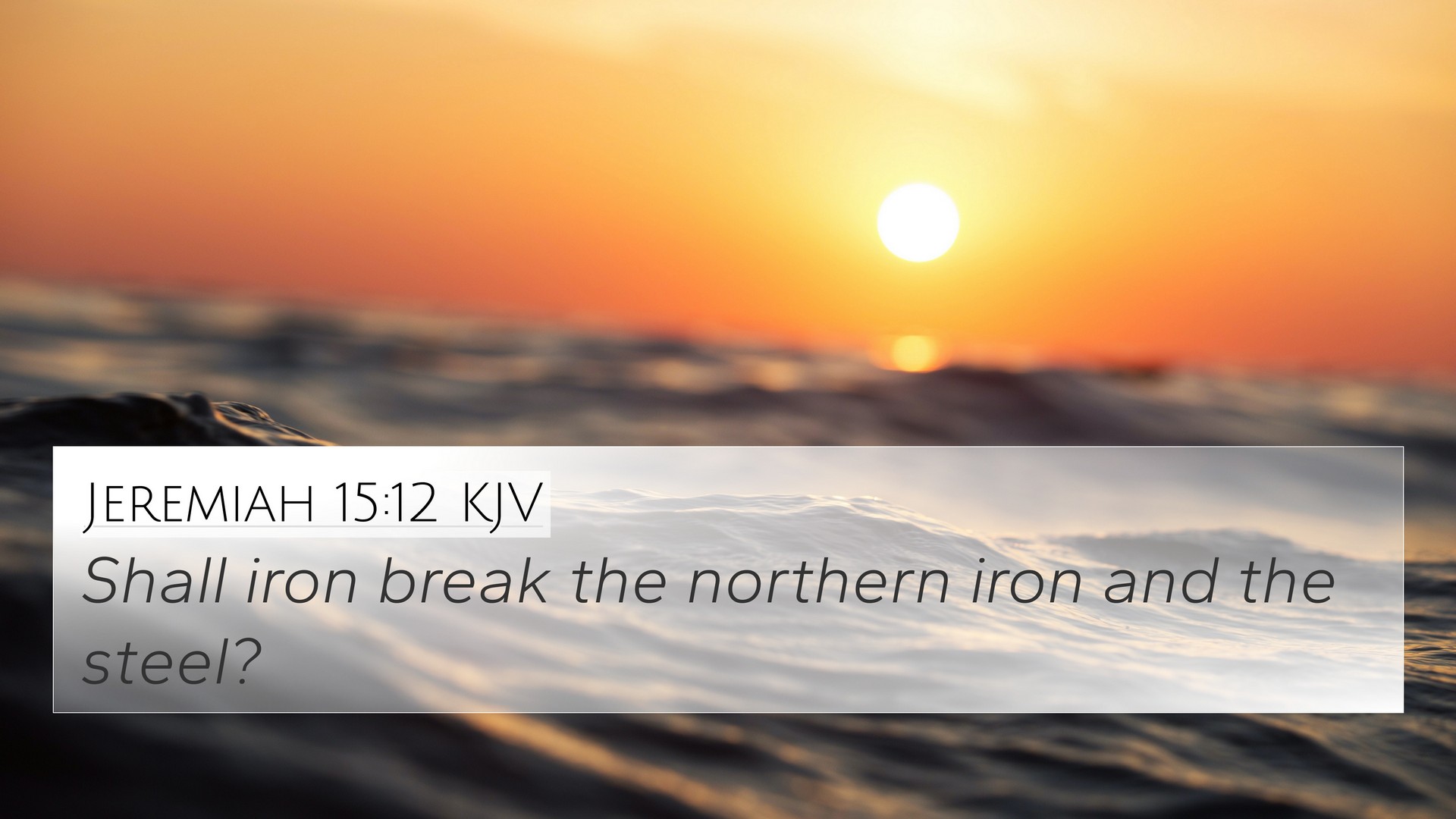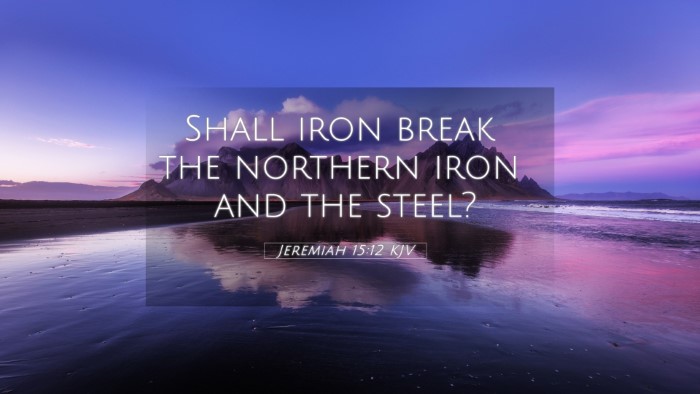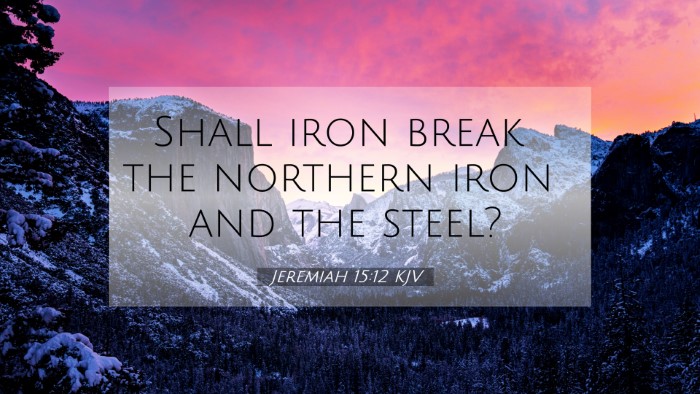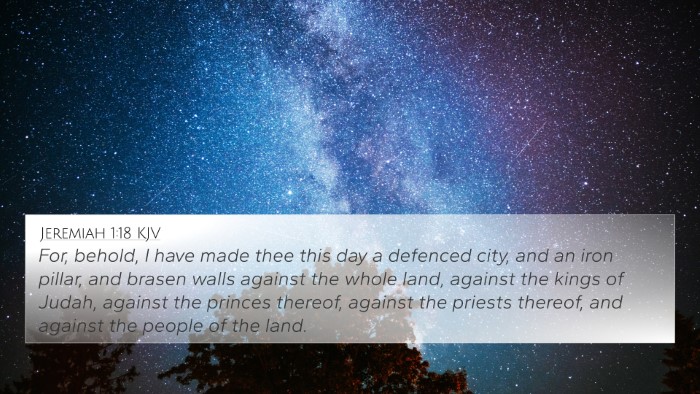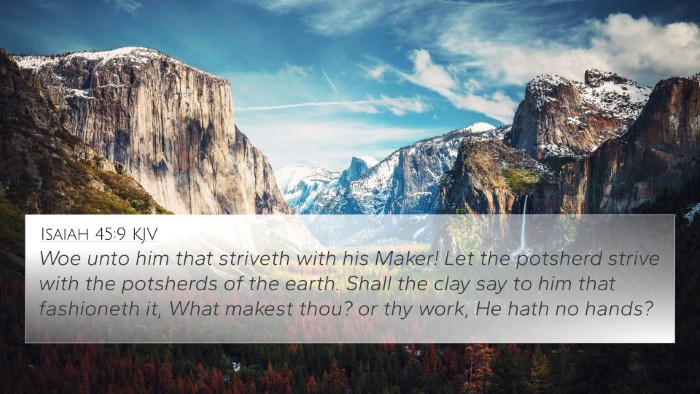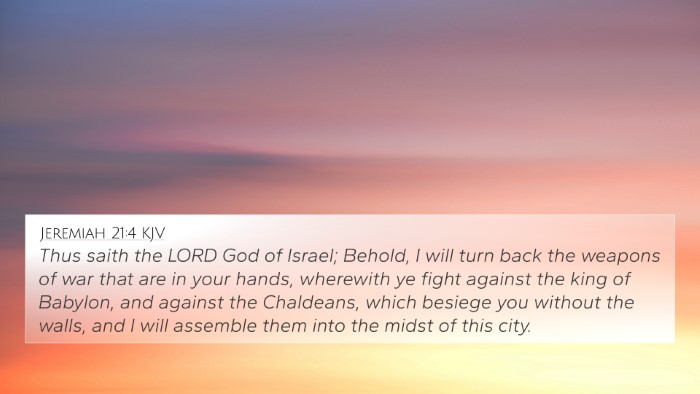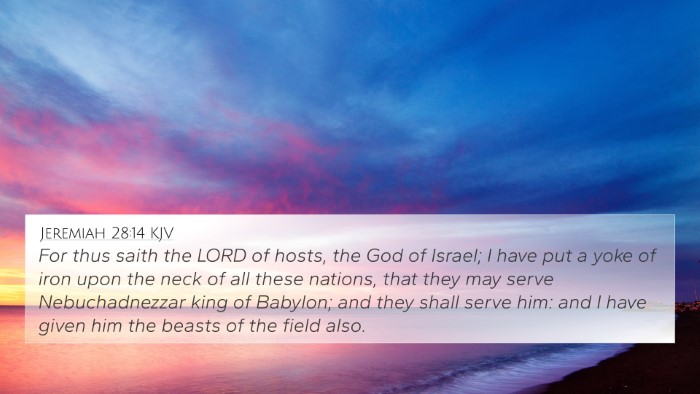Understanding Jeremiah 15:12
The verse Jeremiah 15:12 states:
"Shall iron break the northern iron and the steel?"
This verse is a profound illustration of the challenges faced by the prophet Jeremiah and serves as a metaphorical inquiry into the power and nature of human strife, divine assistance, and the inevitability of God's plans amidst opposition.
Meaning and Context
Jeremiah, known as the weeping prophet, was tasked with delivering messages of judgment to the people of Judah. This verse reflects the intense suffering and struggles Jeremiah endured while facing powerful adversaries. Here are some key insights based on public domain commentaries:
Matthew Henry
Henry emphasizes that this rhetorical question illustrates the invulnerability of God's truth against temporal powers. The northern iron symbolizes the Babylonian threat, which is depicted as strong and harmful, yet ultimately cannot prevail against God's sovereign will.
Albert Barnes
Barnes expounds on the imagery of iron, which conveys the idea of that which is enduring and hard. He suggests that no earthly might, represented by the northern iron, can rupture the divine plan. The verse acknowledges the resilience of God's purposes despite fierce opposition.
Adam Clarke
Clarke offers insight into the poetic structure of the verse, explaining that the phrase stresses the futility of trying to undermine God’s designs. The 'northern iron' refers to the enemies of Israel, and the steel may symbolize the accumulated strength of those forces, which proves inadequate against divine decree.
Related Bible Cross References
Jeremiah 15:12 connects with several other scriptural texts that provide further understanding of its themes of divine authority and human persistence:
- Job 5:12: "He disappointeth the devices of the crafty, so that their hands cannot perform their enterprise."
- Isaiah 54:17: "No weapon that is formed against thee shall prosper; and every tongue that shall rise against thee in judgment thou shalt condemn."
- Romans 8:31: "What shall we then say to these things? If God be for us, who can be against us?"
- Psalms 37:13: "The Lord shall laugh at him: for he seeth that his day is coming."
- Jeremiah 1:19: "And they shall fight against thee; but they shall not prevail against thee; for I am with thee, saith the Lord, to deliver thee."
- Ephesians 6:11: "Put on the whole armour of God, that ye may be able to stand against the wiles of the devil."
- Proverbs 21:30: "There is no wisdom nor understanding nor counsel against the Lord."
Thematic Connections
Throughout the scriptures, themes of God's sovereignty over human affairs and the assurance of His protection in the face of adversity resonate deeply. The comparisons and connections provided in this analysis highlight the consistency of God's message across both the Old and New Testaments.
Tools and Methods for Cross-Referencing
Understanding the connections in scripture can be enriched through:
- Bible Concordance: A comprehensive tool that lists terms and their locations throughout the Bible.
- Cross-Reference Guide: Useful for discovering related verses that complement and support one another.
- Cross-Referencing Bible Study: An effective method of studying scriptures in context by linking themes and messages.
Conclusion
Jeremiah 15:12 serves as a poignant reminder of the strength of God’s purposes and the reassurance provided to His followers. Through the analysis of cross-references and thematic connections, we gain a deeper insight into the message of resilience amidst trials and the enduring nature of divine intervention.
